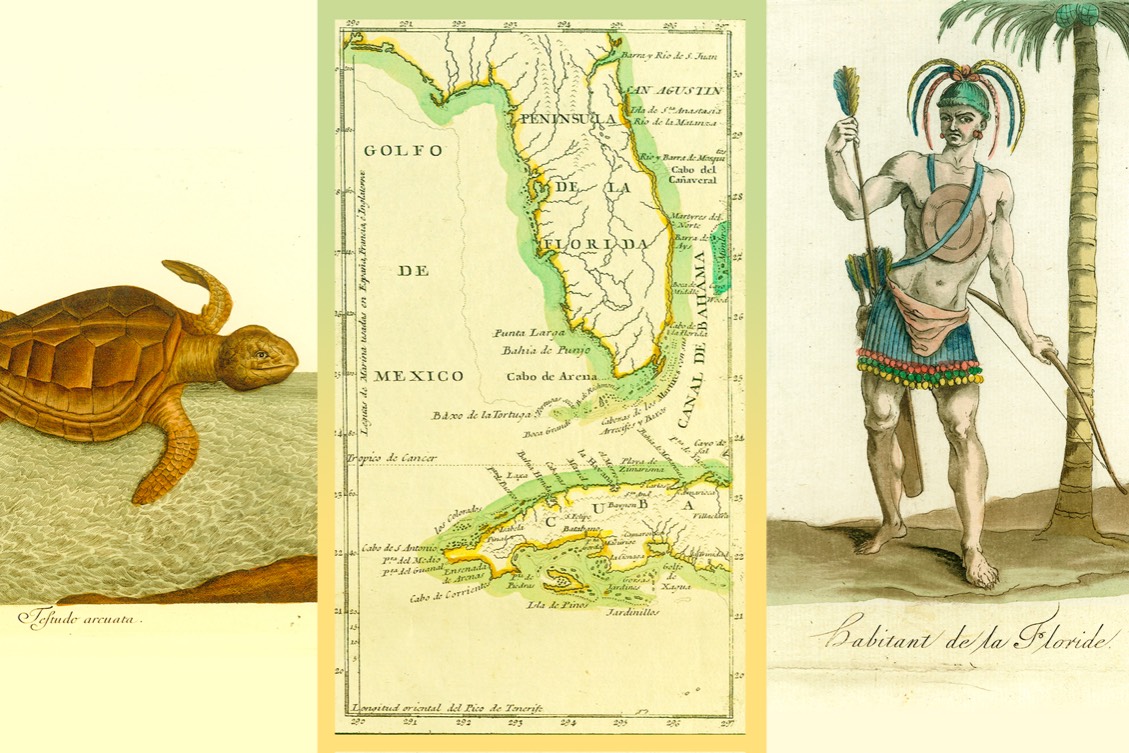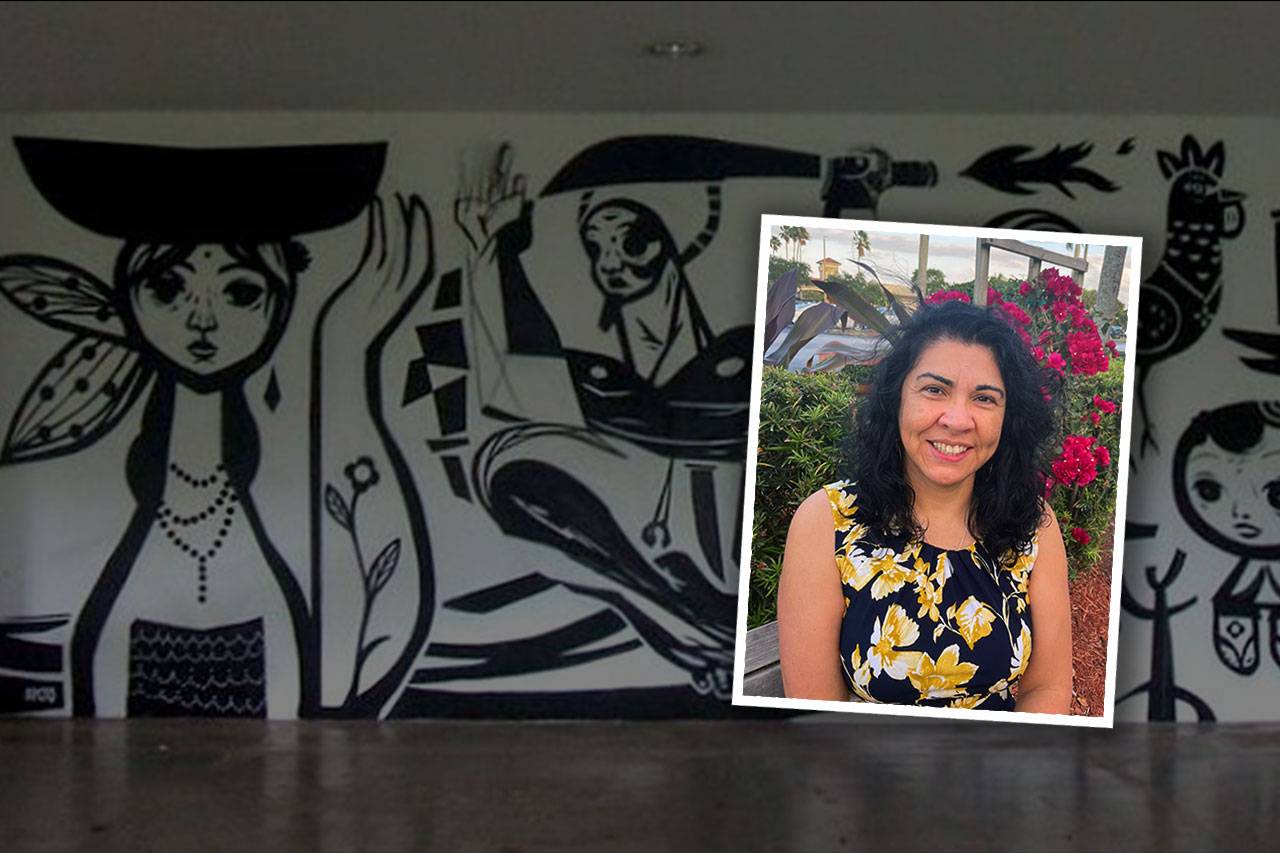RESEARCH THURSDAYS - JASON SHARPLES, Associate PROFESSOR OF HISTORY, RECEIVED THE PECKHAM LONG-TERM FELLOWSHIP ON REVOLUTIONARY AMERICA
by P Burks | Thursday, May 14, 2020
Images (l/r): (detail), Testudo arcuata; (detail), Plano de la ciudad y puerto de San Agustin de la Florida por Don Tomas; (detail), habitant de la Floride. Images courtesy of the John Carter Brown Library at Brown University

Photo courtesy of Martha Stewart
Jason Sharples, Associate Professor of History, recently received the Howard H. Peckham Long-Term Fellowship on Revolutionary America from the William L. Clements Library at the University of Michigan. The grant will support archival research for his project “Tangled Roots: Florida’s Revolving Empires and the Opportunities of Changing Borders, 1760-1830.” The Clements Library is a leading research center for early American history and has unusually deep holdings for the study of colonial Florida.
Sharples will use the award to show that colonial Florida offers an alternative origin story for the United States. He points to the importance of roots in the Caribbean, Latin America, and Native America, as well as the better-studied anglophone North America. He points out that these influences became tangled as successive empires, including Spain, Britain, Spain (again), and the United States, claimed the territory. The research project is organized around three pivotal moments of transition between those empires, 1763, 1784, and 1821. With each, how did inhabitants and newcomers, indigenous people, enslaved people, free people of color and settlers, experience the change in governance and take advantage of overlaps and tensions between imperial powers? And how did a new colonizing power attempt to govern a foreign people who had established roots and transformed the landscape, economy, customs, and Native American diplomatic relations?
“The colonization of Florida speaks to the common historical phenomenon of conquered and annexed territories,” said Sharples. “It illuminates how people conceived of, and used, subjecthood and citizenship when borders moved.”
This project has also received support from the Special and Area Studies Collections Department of the George A. Smathers Libraries at the University of Florida.
This is Sharples’s second major research project. The first resulted in the book The World That Fear Made: Slave Revolts and Conspiracy Scares in Early America


